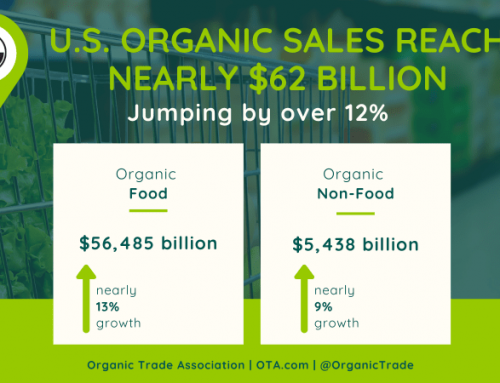The National Organic Standards Board (NOSB) held its public meeting April 29 – 2, 2014, in San Antonio, TX, to discuss a number of action items related to the Organic industry. This year, the spring meeting included many agenda items held over from the fall meeting, which was cancelled due to the partial government shutdown in October 2013. Of particular interest at the spring meeting was the discussion of synthetic methionine, streptomycin, and a disagreement over proposed changes in organic “sunset” rules between organic consumer advocacy and industry groups.
Synthetic Methionine – For the Birds?
A proposal to allow more flexible use of synthetic methionine by averaging the amount over the life of the bird in organic poultry feed and egg production failed to get the required two-thirds majority vote at the spring NOSB meeting. The decision concerned a number of organic egg and poultry producers who claim their birds are suffering from inadequate nutrition because of methionine supplementation restrictions. Several commenters shared compelling testimony on health and behavior issues their flocks were experiencing. The methionine discussion will go back to committee and may be included in the fall 2014 NOSB meeting in Louisville, KY. Meanwhile, existing rules for methionine apply, which is a hard cap of 2 lb. per ton of feed for broilers and layers, 3 lb. for turkeys and other fowl. Rodale’s New Farm magazine, however, reported that West Virginia University researchers found that producers could grow healthy birds without synthetic methionine – “as long as the birds had adequate access to pasture.”
Streptomycin – Into the Sunset
Streptomycin was the only remaining exception to the prohibition on the use of antibiotics in organic. Streptomycin is currently on the list to sunset in October 2014. Apple and pear growers petitioned that the sunset should be extended until October 2017 in order to find suitable alternatives, arguing that the drug is needed to treat fire blight, a bacterial disease that kills the shoots of trees. The NOSB motion to amend the current expiration from October 2014 to October 2017 and specifically annotate only for use on apple and pear crops for fire blight control failed. Therefore, Streptomycin will sunset as of October 2014. With this ruling, USDA Organic now prohibits the use of all antibiotics. According to Alesia Bock, Director of Agrisystems International, NOSB is committed to the phase-out of this material, and encourages research and development of acceptable alternative materials and/or methods to control fire blight in organic apple and pear crops.
Aquaculture – Back to Committee
All aquaculture materials proposed for organic farm-raised fish, shellfish, crustaceans, and algae were referred back to NOSB’s Livestock Subcommittee. Also, a motion was passed to require the NOP to publish draft aquaculture standards and updated Technical Reviews before the Livestock Subcommittee would consider any aquaculture material listings in the future.
Sunset Review Subject to Change
Disagreement and a protest by Organic Consumers Association (OCA) at the NOSB meeting concerned a move by the USDA National Organic Program (NOP) that could potentially make it more difficult for the NOSB to phase out synthetic and non-organic materials from organic food. The OCA argued that the revised sunset review would not apply adequate pressure on the organic industry to find alternatives. In the past, materials were reviewed every five years. Currently, these materials need to be petitioned to remain on the list. The change allows for materials to remain on the list until they are petitioned to be removed. At the NOSB meeting, Dr. Lisa Brines of USDA NOP explained that NOP was given a directive from the Secretary of Agriculture to streamline Organic (NOP) rulemaking. There were two intended goals: 1) Create a thorough and transparent review process for all substances and allow for two public comment periods before the review process is complete; and 2) Ensure any changes to the list (petitioned or Sunset) is supported by two-thirds majority of NOSB. Some lawmakers are also protesting this change. Senator Patrick Leahy (D-Vt.) and Congressman Peter DeFazio (D-Or.), authors of the Organic Foods Production Act of 1990, voiced their disapproval in an April 2014 letter to USDA Secretary Tom Vilsack, saying the policy change was “in conflict with both the letter and intent of the statute.” Recommendations about the sunset change will be further discussed at the next NOSB meeting.











Leave A Comment